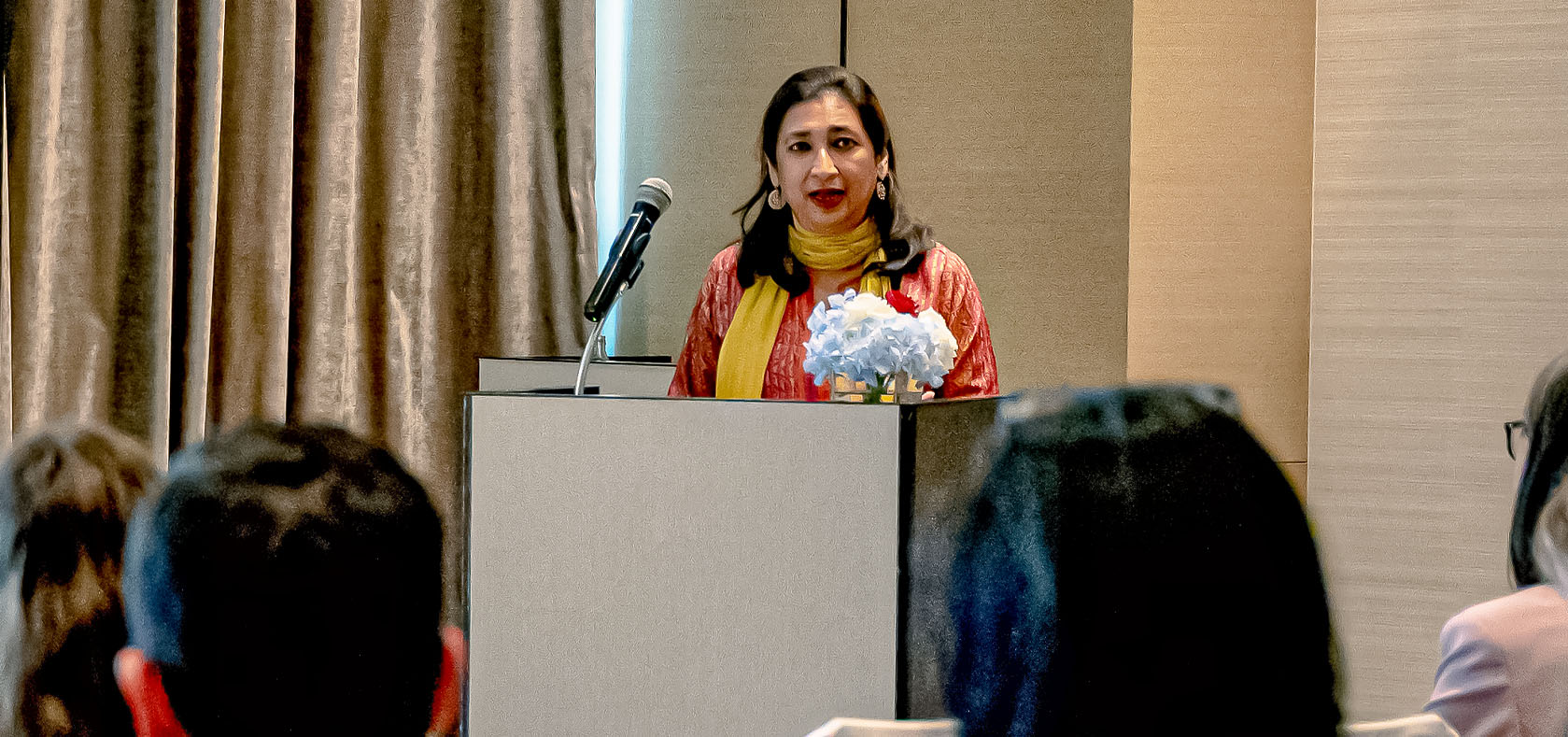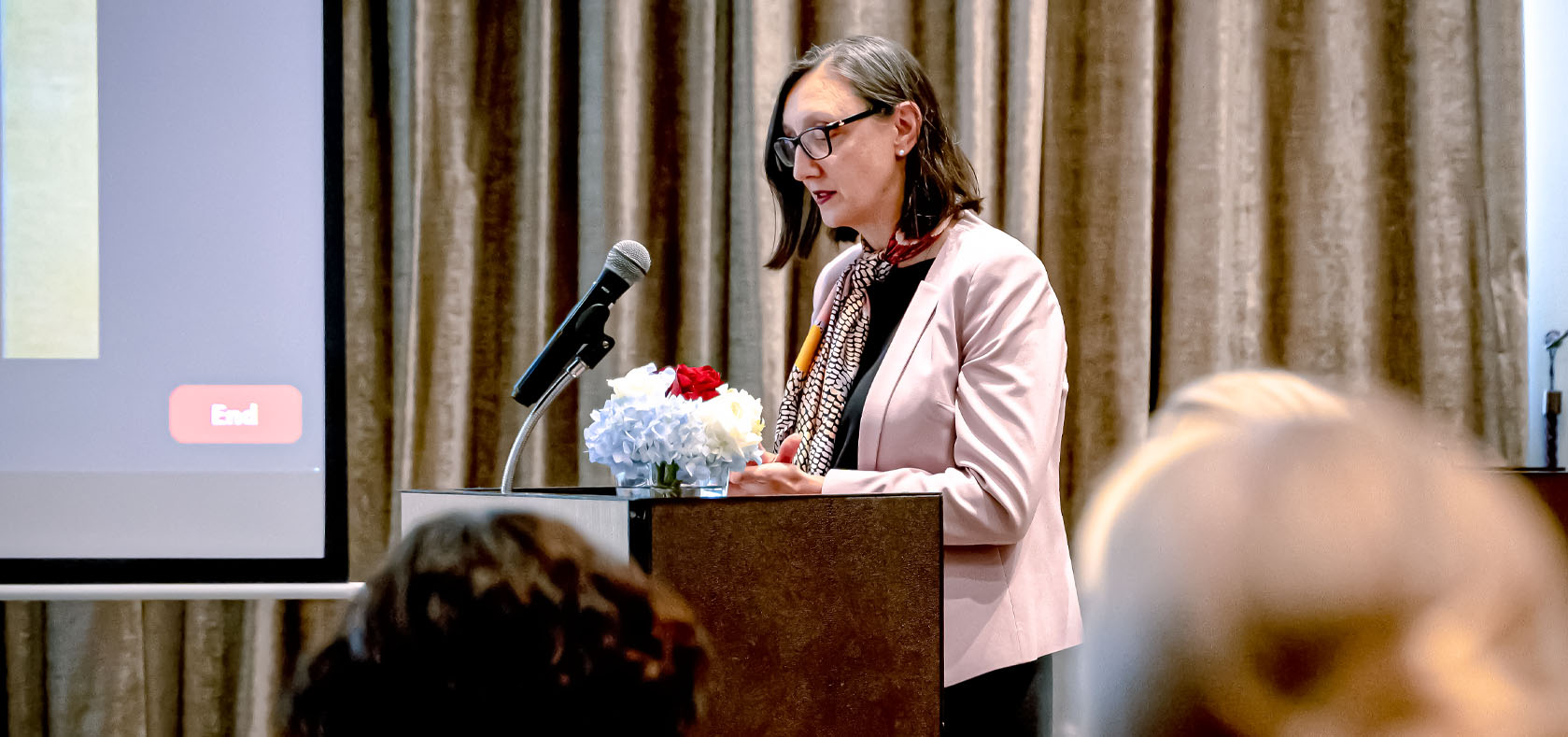New UN Women framework to address non-traditional security issues for women and girls in Asia and the Pacific
Date:
[Press release]
[For immediate release]
Bangkok, Thailand — A new Regional Framework Towards Peaceful and Inclusive Societies in Asia and the Pacific was launched by UN Women Regional Office for Asia and the Pacific on Tuesday. The Framework will advance the agenda for women, peace and security (WPS) and inclusive governance in the region.
“The Framework is designed to also meet the evolving needs of women and girls to address non-traditional security risks, such as climate change, cybersecurity,” said Assistant Secretary General and UN Women Deputy Executive Director Anita Bhatia. “It will apply a WPS lens to security risks in a complex and dynamic landscape in the Asia and the Pacific region,” she said during her opening remarks at the launch ceremony.

The Regional Framework sets a vision to advance the WPS agenda and inclusive governance in Asia and the Pacific with a clear timeframe of five years, working with the support of the Governments of Australia and the Republic of Korea, and in consultation with bilateral partners, development partners, civil society organizations and government officials.
"The Framework is designed to also meet the evolving needs of women and girls to address non-traditional security risks, such as climate change, cybersecurity ..”
— UN ASG and UN Women Deputy Executive Director Anita Bhatia
For decades, women in the Asia-Pacific region have been underrepresented in governance and decision-making. Their representation rates in parliaments are among the lowest in the world, with only 21 per cent in Asia and 6.5 per cent in the Pacific. Gender inequality in the region translates into weaknesses in existing governance systems, undermines equal access to justice and redress for human rights violations, and contributes to a deepening trust crisis between people and the institutions that serve them, with many being left behind and no longer confident that the system is working for them.
Globally, war, violent conflict, terrorism and violent extremism have differential and devastating consequences for women and girls. And there is strong evidence that women’s participation in peace processes contributes to longer, more resilient peace after conflict. Yet, despite this, women remain largely invisible to, and excluded from, peace processes and negotiations. UN Women supports women of all backgrounds and ages to fully participate in processes to prevent conflict and build and sustain peace.
“These new challenges require innovative responses and solutions,” Ms. Bhatia said. “A significant rethinking of women’s leadership, inclusive governance and gender-responsive people-centred justice was key to developing the framework that, in collaboration with partners and allies, aims to build more inclusive, just, peaceful, and resilient societies for all.”
Sarah Goulding, Assistant Secretary, Gender Equality Branch, Australian Department of Foreign Affairs and Trade (DFAT), reiterated that “the capabilities, insights, strengths and leadership of women and girls, and persons of diverse gender identities, are critical to driving effective strategies for change. The Women Peace and Security agenda makes clear that our ability to address these challenges is most effective with inclusive and diverse participation from across society and sectors.”

As an example of activities under the framework, UN Women intends to invest in artificial intelligence for peace and will support women’s organizations and women peacebuilders to use the full potential of technology to advance and expand their advocacy, networking and campaigning efforts.
“Our world is changing rapidly. As we become increasingly technology-dependent, our societies face new and emerging challenges. While tech carries great potential to leverage gender equality and women’s leadership in peace efforts, women must be part of the design of such technologies and artificial intelligence to ensure that these are equally responsive to the needs of women and men,” said Priyank Mathur, CEO of Mythos Lab.
"[..] women must be part of the design of such technologies and artificial intelligence to ensure that these are equally responsive to the needs of women and men ..”
— Priyank Mathur, CEO of Mythos Lab. Photo: UN Women/Ploy Phutpheng
In addition, UN Women also seeks to ensure that gender and security issues are part and parcel of the ongoing climate-change discussions.
“Our Pacific experience can assist the international community to understand the Triple Nexus. Women-first responders, faith communities and local peacebuilders are together connecting all parts of the Triple Nexus for the purpose of sustainable peace and development – including responding to COVID-19 during disasters and the climate crisis. We know that what works is coherent programming that integrates peacebuilding. UN Women is the key UN agency to ensure there is coherence across the multilateral system to support us to increase women and women and youth leadership and the application of inclusive conflict prevention across the nexus,” noted Sharon Bhagwan Rolls, Gender Liaison, Global Partnership for the Prevention of Armed Conflict International Steering Group (GPPAC) and Regional Representative, Shifting the Power Coalition.
Drawing on two decades of lessons learned and coalition building, UN Women will continue to build the evidence base on WPS and inclusive governance, particularly on emerging issues, and to leverage good practices to deliver change to build Peaceful, Resilient and Inclusive Societies in Asia and the Pacific.
For inquiries:
Gaelle Demolis
Governance, Peace and Security Specialist
UN Women Regional Office for Asia and the Pacific
e: [ Click to reveal ]
Trisha Albay
Regional Communications Specialist a.i.
UN Women Regional Office for Asia and the Pacific
e: [ Click to reveal ]
About UN Women
UN Women is the United Nations organization dedicated to gender equality and the empowerment of women. A global champion for women and girls, the organization was established in 2010 to accelerate progress on women’s rights worldwide. UN Women’s efforts are based on the fundamental belief that every woman has the right to live a life free from violence, poverty, and discrimination, and that gender equality is a prerequisite to achieving global development.